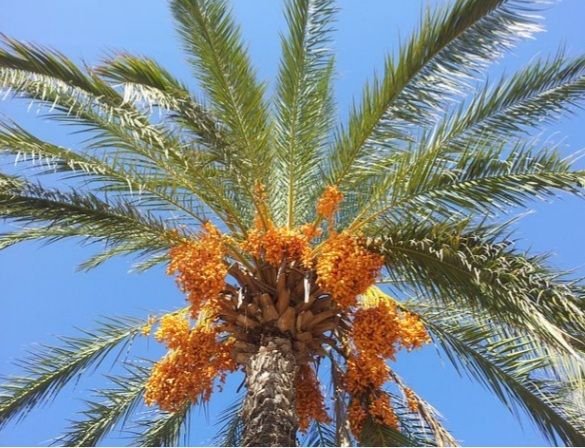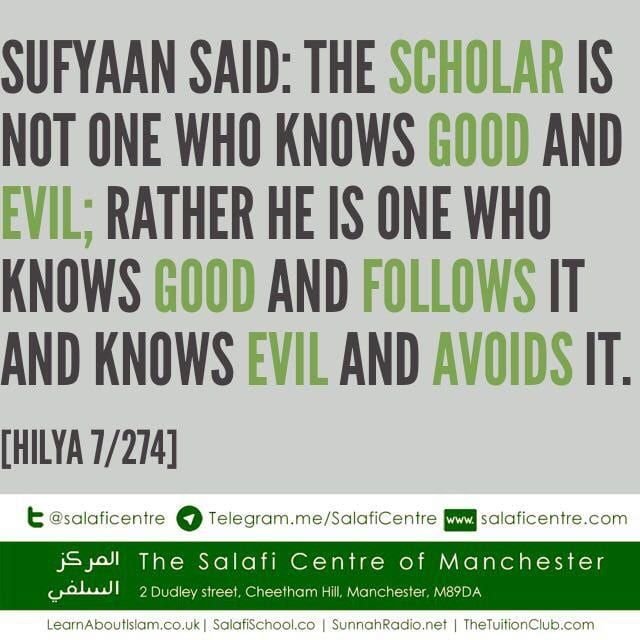In The Name of Allah, The Most Merciful, The Bestower of Mercy.
The Messenger [peace and blessings of Allah be upon him] said: “Indeed, the scholars are the inheritors of the prophets, for the prophets do not leave behind a dinar or a dirham for inheritance, but rather, they leave behind knowledge. So whoever takes hold of it, has acquired a large share (i.e. of inheritance)”. [Sunan At-Tirmidhee 2682]
The Conversation Begins
Questioner: May Allah bless you. The issue of Palestine is a special issue and has some peculiarities. It is possible to use as evidence the hadith found in the book Al-Taaj Al-Jaami Lil-Usul, which is narrated by Abdullah Bin Amr [may Allah be pleased with him and his father] on the authority of the Prophet [peace and blessings be upon him], who said, “There will be migration after migration and the people who are best will be those who cleave most closely to places which Ibraaheem migrated. The worst of its people will remain in the earth cast out by their lands, abhorred by Allah, gathered along with apes and swine by fire”. This hadith was narrated by Abu Dawud with a valid chain of transmission. I do not know how authentic this hadith is? [a]
The Shaikh: Okay.
Questioner: This is a point. The point now is that whenever we think of or observe the people of Palestine, (it is) the conflict with the Yahood, and you know best, may Allah bless you, about the Yahood, their impurity (i.e. evil deeds), and their hatred against Islam and Muslims.
The Shaikh: O my brother! This is the type of speech that we do not want because this is all well-known. We will see what the problem is.
Questioner: The problem is when you told the man that it is obligatory to exit and go to an Islamic country, never mind leaving a place of migration to an Islamic country!
The Shaikh: Do not say “Khurooj (exit)”.
Questioner: Al-Hijrah (Migration).
The Shaikh: Yes
Questioner: Migration from the land of Palestine, from the land of war?
The Shaikh: Yes.
Questioner: How do we reconcile this statement (of yours) with the hadith of the Messenger [peace and blessings be upon him] “You will fight the Yahood, while you are in the outskirts of Bayt al-Maqdis”, the hadith that you know?
The Shaikh: Oh yes.
Questioner: So, let us know, may Allah bless you.
The Shaikh: Others besides you utter this Shubhah (i.e. ambiguity, or an affair that contains some truth but mixed with untruth or doubt). Is (Baytul Maqdis) better than Al-Masjid Al-Haraam (the Sacred Mosque at Makkah)?
Questioner: No.
The Shaikh: Good, is Baytul Maqdis better than Makkah?
Questioner: No.
The Shaikh: Good, which of the two migrations is more dangerous- the migration of the Messenger from Makkah (to Madinah) or this migration that we are proposing?
Questioner: The migration of the Messenger (was more dangerous).
The Shaikh: Therefore, this (migration we are proposing) is all the more (required), so why do you over-emphasise and begin your speech based on that hadith about the migration of Ibraaheem [peace be upon him]? First, the Ibraaheem’s migration was not to Baytul Maqdis, but rather the entire Shaam, isn’t it?
Questioner: Yes
The Shaikh: Good, so if the Messenger[peace be upon him] established for the Muslims- by way of his Sunnah – to migrate from a land where they are persecuted, due to his migration from the (land of) the Sacred Masjid; and firstly, as I mentioned, that they migrated to Abyssinia, which was a land of disbelief; Subhaanallaah! When it is the case that the Messenger established this Sunnah for his persecuted companions to migrate from Makkah to the land of disbelief – to Abyssinia, to that (ruler) the Negus; then why do you find it strange that you – a Muslim who believes in Allah and His Messenger, and is keen to follow the Messenger [peace be upon him]- to advice his Muslim brothers based on what is within his ability to do so? Enough of throwing the souls to destruction, and shedding the blood of Muslims in vain. (It is said) in the colloquial proverbs in some Arab countries, “An eye cannot resist a prick”.
Islamic countries that have power, weapons, planes, and tanks are watching (i.e. due to inability), and the Palestinians are the ones facing the tanks and the planes and so on. You think that they will expel the Yahood (i.e. from their occupied land), and (expelled) based on the statement (claim) of that impostor who was swallowed up and was announcing that he would throw the Yahood into the sea; you think that our Palestinian brothers, those who are persecuted by the Yahood, the worst of persecution, will be able to throw the Yahood in the sea? [b]
Questioner: Of course not.
The Shaikh: So, may God bless you. These people are more obligated to migrate than others because they are killed by the dozens every day, compared to one Yahoodi they kill every month. [c] This migration that you found strange, the exact opposite is correct. When it is the case that the Messenger first permitted the weak and persecuted people in Makkah to migrate to Abyssinia, the land of the Christians at that time, we say today, “Do not migrate to the land of the Christians, but rather migrate to the land of Islam (Muslim countries)”. This is the first affair. Secondly, when Allah gave him permission to migrate from Makkah to Madina, Allah’s Messenger [may peace and blessings of Allah be upon him] stood on which mountain? Qubays?
Questioner: Mountain Abu Qubays.
The Shaikh: Yes, Abu Qubays. Then he turned to Makkah and said, “As for you, you are the most beloved land among Allah’s lands to me, and if it were not that your people expelled me from you, I would not have left.” So, this is Allah’s Messenger, whose heart is attached to Masjid Al-Haraam, which he made a place of (security and safety) for the people.
Questioner: “A place of resort for mankind and a place of safety”. [d]
The Shaikh: Oh yes, “A place of resort for mankind and a place of safety”. So, he was forced to migrate – first by himself – to be saved, and then his brothers who joined him. If he migrated from Allah’s best land, then why does one not migrate from Allah’s third best land, which is Baytul Maqdis? Muslims are persecuted, especially since they are tortured every day. Then you find what is called Arafat’s affiliate; what is the name of the organization?
Questioner: PLO
The Shaikh: The PLO is in the hundreds and thousands, and they may have money, weapons, etc., and they are watching?
Questioner: The PLO is well-known to be (like) the rubbish carried down by a torrent. [e]
The Shaikh: Good, this is what it is.
To be continued…InShaaAllah
The next discussion between the Shaikh and the questioner is specifically about Jihaad.
Source: Silsilah Al-Hudaa Wan-Nur 770. paraphrased. Arabic text below. Your feedback is welcomed to improve the content of this paraphrase.
[a] Sunan Abu Dawud 2482
[b] This only applies to combatants who wage war against the Palestinians with weapons if the Palestinians and the Ummah had the ability to fight the occupiers and their allies. However, one must clearly bear in mind that during a declared war between two nations, non-combatants are not killed or oppressed, including women, children, monks, etc Read: https://abukhadeejah.com/salafi-shaikh-fawzaan-on-jihaad-in-our-times-and-the-guidelines-of-jihaad-according-to-islam/
[c] Imaam Al-Albaani [may Allah have mercy upon him] was asked about this behavior of some people in Palestine, whose recklessness – in the name of so-called Jihaad – brings greater harm to the Muslims, so replied: “If your circumstances carry on in this manner, imagine, what will be the outcome? What will the Muslims be seeing and witnessing?! What will the Palestinians be massacred for? What will be the outcome (when) a Yahoodi is killed and in return tenfold of Palestinians are killed, thousands put in prison? Would this be a victory against the Yahood? This is not the (right) path, (which) actually the Muslims have – at present – wrongly identified as the (correct) way of Jihad”. [Silsilah Al-Hudaa Wan-Noor 317]
[d] Surah Al-Baqarah. Ayah 125
[e] Thawban [may Allah be pleased with him] reported that the Prophet (ﷺ) said: “The people will soon summon one another to attack you as people when eating invite others to share their dish”. Someone asked, “Will that be because of our small numbers at that time?” He replied, “No, you will be numerous at that time, but you will be scum and rubbish like that carried down by a torrent, and Allah will take the fear of you from the hearts of your enemy and place weakness into your hearts”. Someone asked, “O Allah’s Messenger! What is wahn (weakness)?” He replied, “Love of the world and dislike of death”. [Saheeh Sunan Abee Dawud 4297]
Finally, bear in mind that Muslim rulers are allowed to sign peace treaties if they see the need to do so. Read: https://abukhadeejah.com/treaties-with-the-non-muslims-do-they-necessitate-allegiance/
Read here about irresponsible and reckless Hamas:
https://abuiyaad.com/w/hamas-israeli-right
https://www.salafitalk.net/st/viewmessages.cfm?Forum=6&Topic=1799









